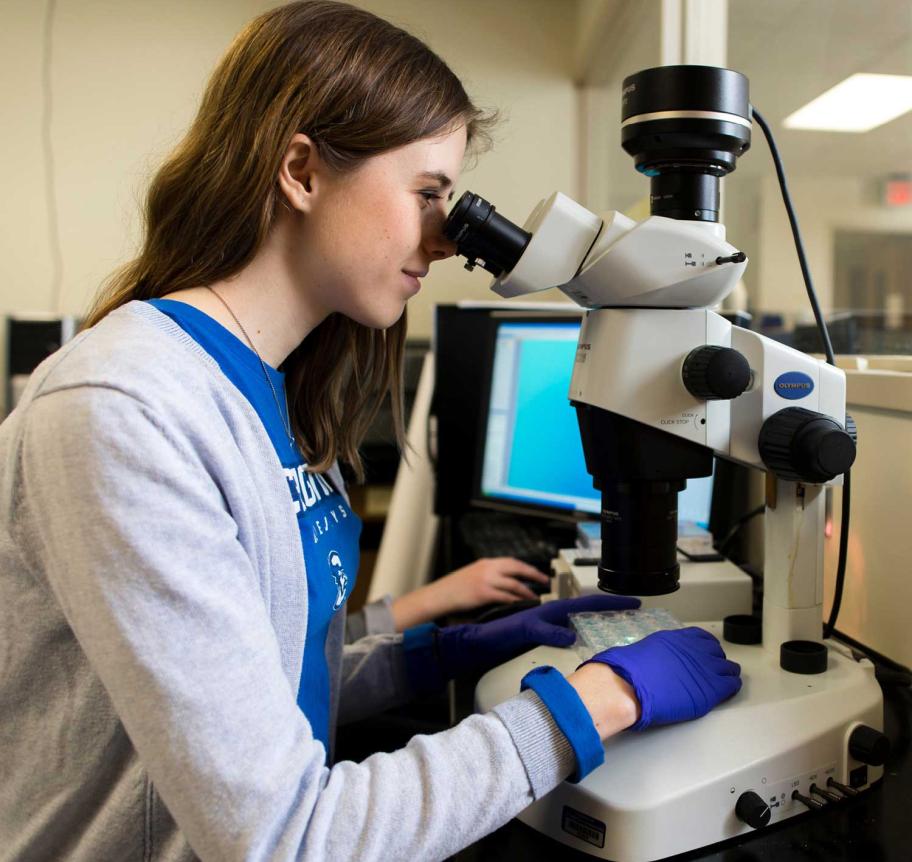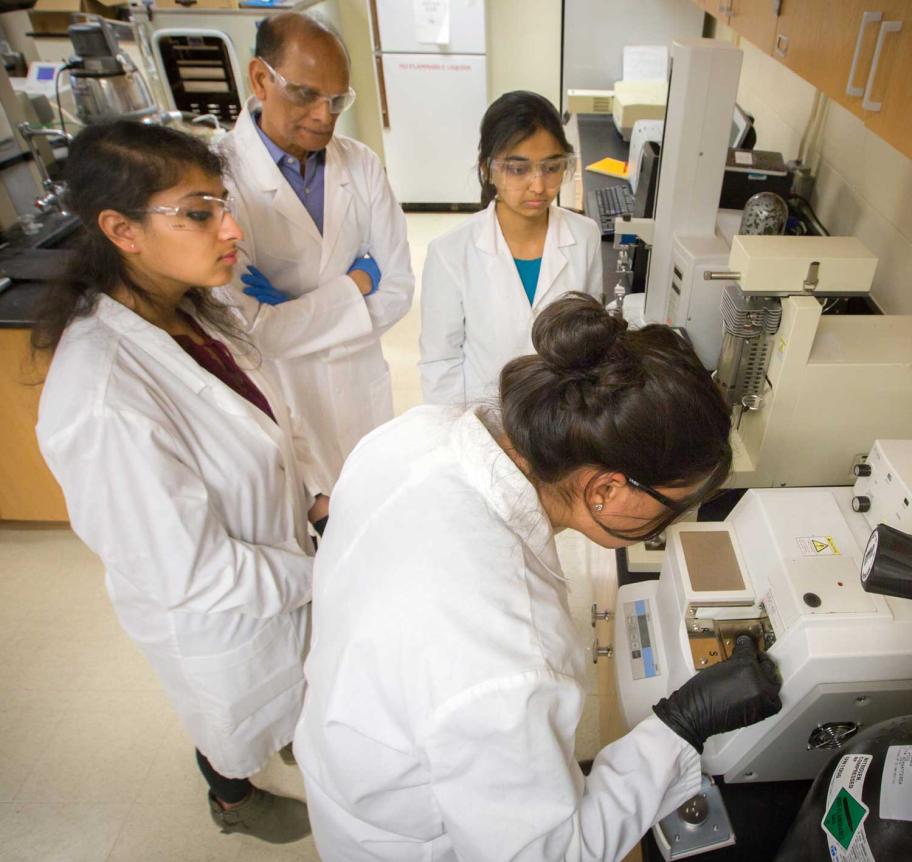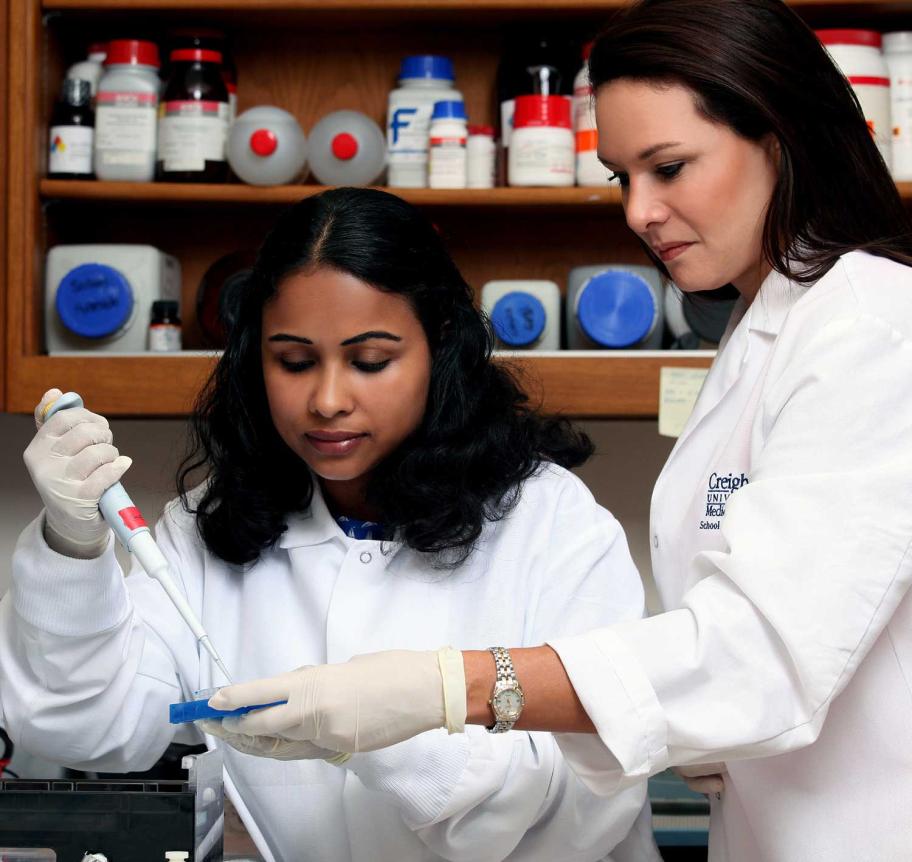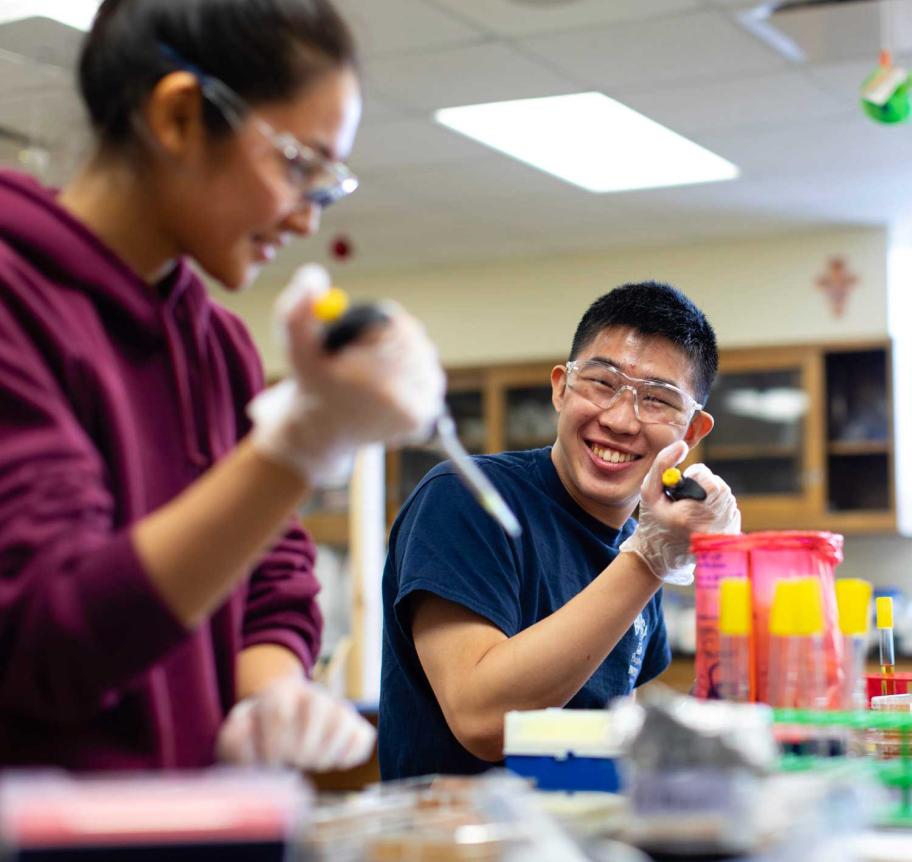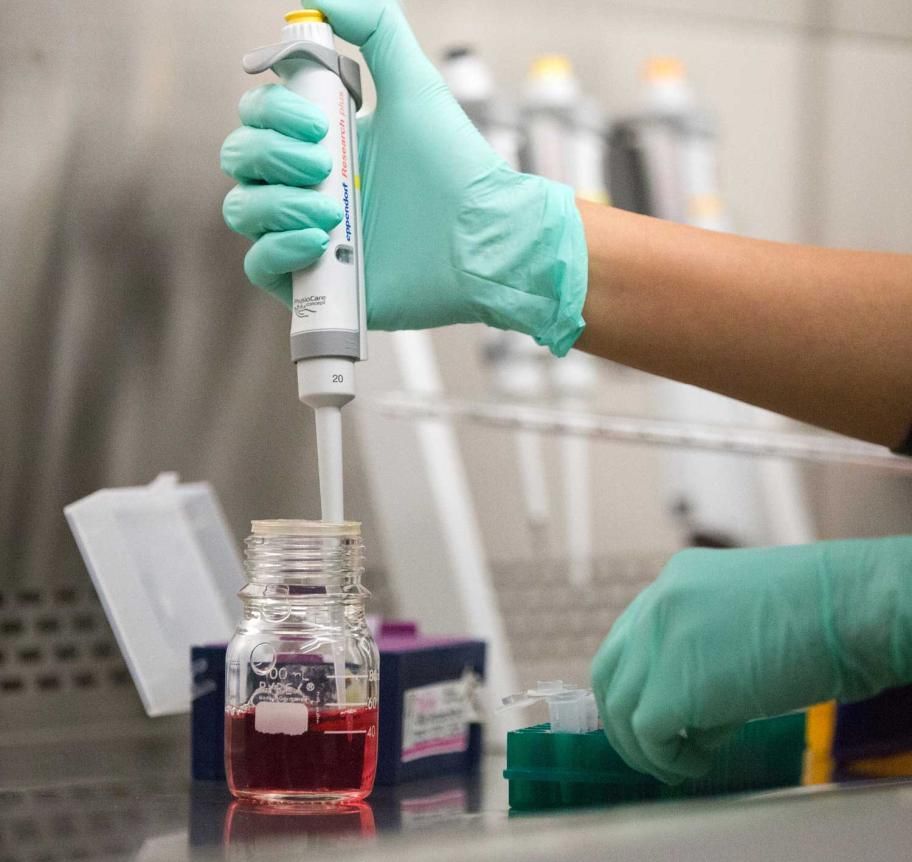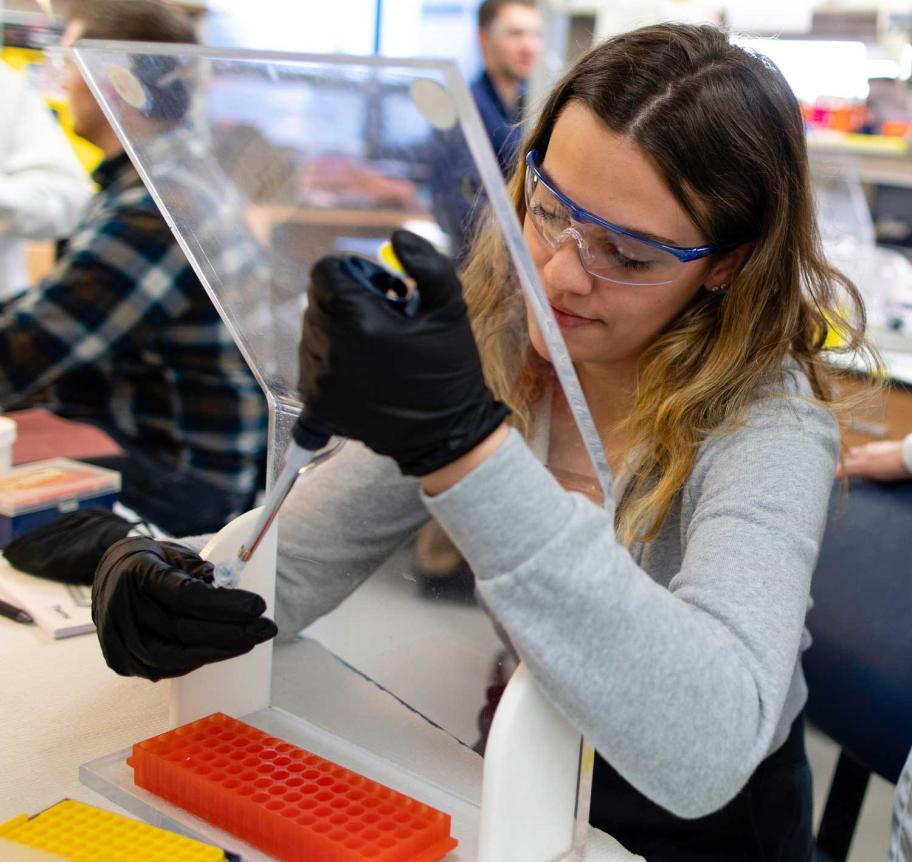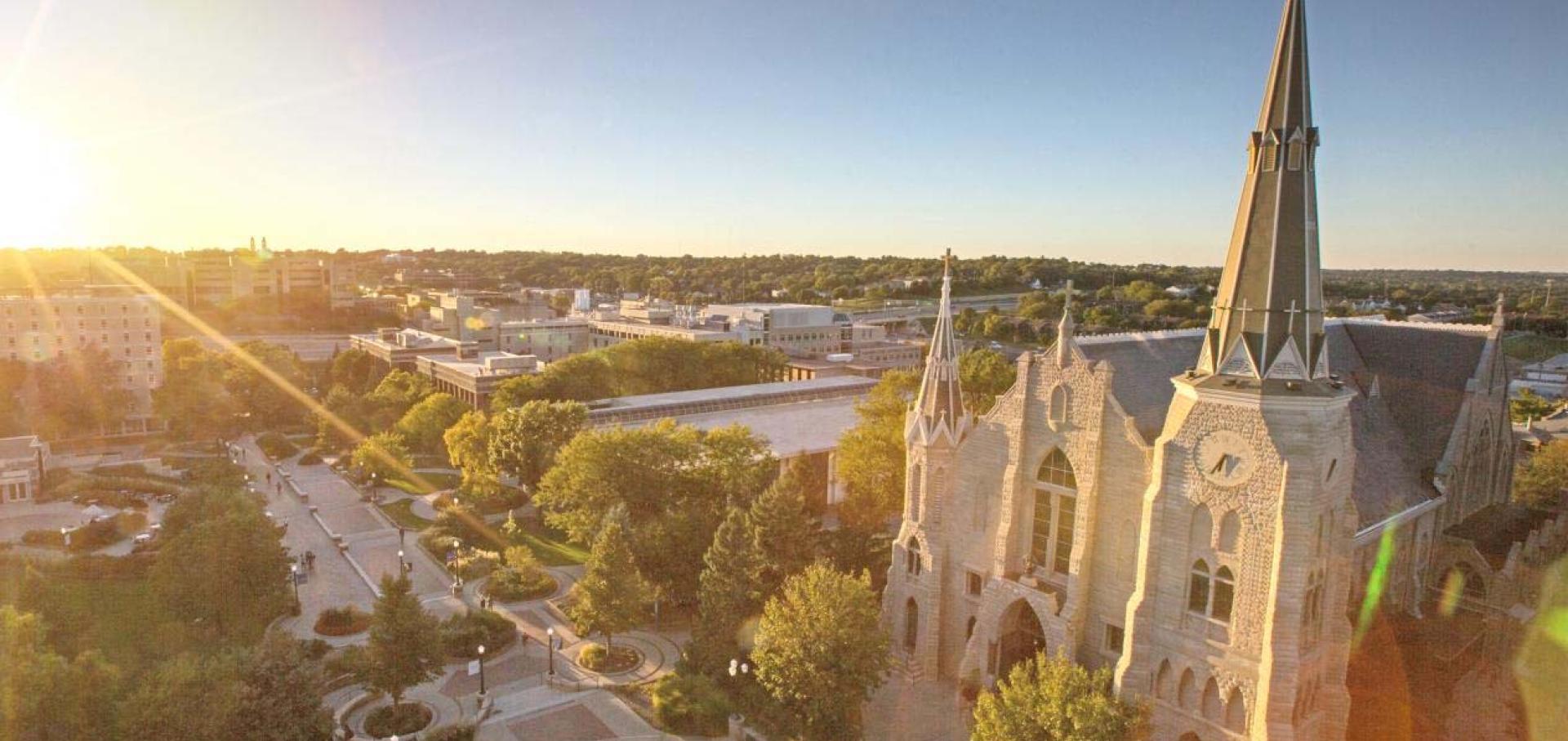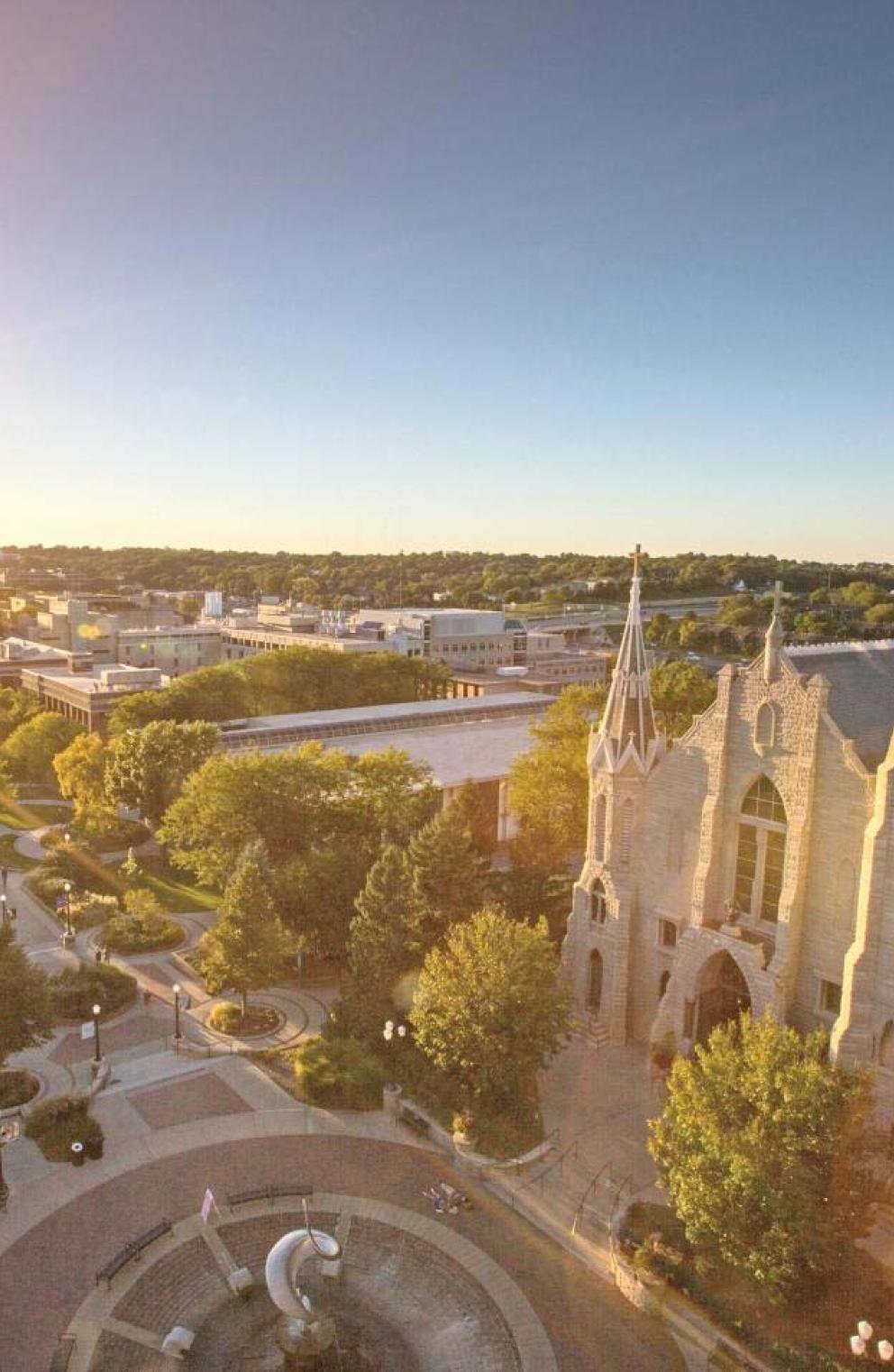Biochemistry (BS and BSChm Degrees)
Students who earn a biochemistry degree from Creighton University become future professionals—doctors, dentists, researchers, pharmacists.
The biochemistry major combines foundational courses in chemistry, biology and physics with advanced biochemistry and biology electives. Students study metabolism, enzymology and structural biology, along with the study of biopolymers, such as proteins and nucleic acids.
The BS in biochemistry is especially suitable for students interested in medicine. It offers an excellent preparation for a graduate education in biochemistry and for careers in biochemistry and related fields, including molecular biology and biophysics.
Creighton offers a Bachelor of Science (BS) in biochemistry and a Bachelor of Science (BSChem) in biochemistry. Creighton’s BSChm program is endorsed and certified by the American Chemical Society (ACS).
Program Details
Program Goals
The Bachelor of Science in biochemistry is especially suited for students interested in medicine.
As a biochemistry major, you’ll learn:
- An understanding of biochemistry that will prepare you for success in the job market or at graduate and health professions schools
- The mechanics of research with the benefit of faculty mentorship, plus opportunities to be published in scientific journals and present at national meetings
- Unique and creative problem-solving skills taught through independent learning as well as team-focused activities
- Easy access to Creighton’s four health professions schools (dentistry, nursing, medicine and pharmacy and health professions)
Curriculum
Along with Creighton’s core requirements, there are 35 credits within the biochemistry curriculum.
Specializations
- BS in Biochemistry
- BSChm with a track in Biochemistry (American Chemical Society-accredited degree)
Admissions Requirements
Creighton admissions are based upon:
- High school GPA
- ACT or SAT scores*
- Extracurricular activities
- Personal statement to demonstrate creative abilities not reflected in your transcripts
- Recommendation from high school counselor
- Honors sections and advanced placement courses will enhance a candidate’s application
*For students who are choosing to apply test-optional, ACT/SAT exam scores are not required at the time of application for admission.
Dates & Deadlines
Applications for the fall semester open on Aug. 1 of the prior year. For scholarship consideration, the earlier you complete your undergraduate application, the better. For up-to-date deadlines, visit our admissions page.
Tuition & Financial Aid
Tuition rates are updated each year. Visit our financial aid site to learn more about the cost of attendance.
Financial Aid
Creighton University’s Financial Aid Office administers over $200,000,000 in student aid each year from federal, state, institutional and private sources.
To help make your undergraduate studies at Creighton University more affordable, we encourage you to file the FAFSA to apply for financial assistance. A variety of scholarships are also available.



Biochemistry majors can experience research opportunities with faculty in the Department of Chemistry or Biochemistry, while others conduct research with members of other departments, including those in the College of Arts and Sciences, the School of Pharmacy and Health Professions, and the School of Medicine.
Undergraduate biochemistry students can also access Omaha-area research opportunities at the University of Nebraska Medical Center and the Omaha Veterans Administration Medical Center.
During the summer, some students opt for a research experience at Creighton, while others take part in programs hosted by National Science Foundations-funded colleges and universities across the U.S.
Many who study biochemistry go directly to professional schools to study medicine, dentistry or pharmacy. Others pursue graduate studies in biochemistry or related fields such as chemistry, chemical biology, molecular biology or biophysics. Finally, some graduates land jobs with chemical, agricultural, or pharmaceutical companies; pursue advanced studies in business or law; or participate in organized volunteer programs.
Biochemistry majors from Creighton have been particularly successful when applying to competitive graduate and professional schools, winning competitive fellowships and financial support to help with their studies, and landing desirable jobs that set them up for strong careers.
The job market for students with training in biochemistry is projected to remain strong in the coming years.










